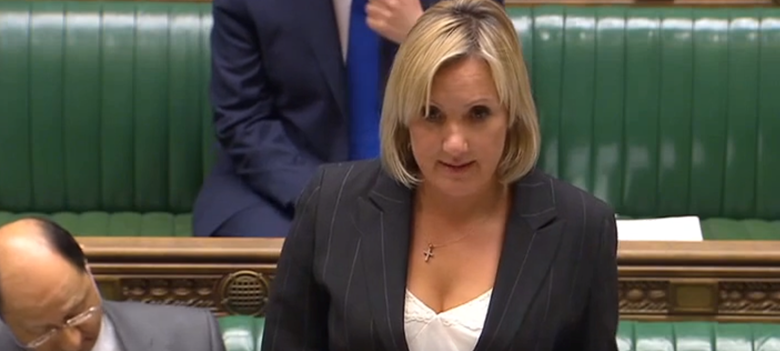More than 500,000 children to miss out on free 30 hours childcare
Gabriella Jozwiak
Monday, February 13, 2017
More than half of children currently claiming 15 hours of government-funded childcare a week will not qualify for extended hours to be offered later this year, the government has revealed.

Under plans to extend free childcare provision from 15 hours to 30 hours per week, only families where both parents work 16 hours a week, or sole parents in a single-parent household working 16 hours a week, will qualify for 30 hours of free care.
Childcare minister Caroline Dinenage revealed this meant less than half of the current number of children claiming 15 hours would be eligible for 30 hours.
In response to a parliamentary question, she said of the 910,000 children currently receive 15 funded hours, only 390,000 (42.9 per cent) would qualify for 30 hours. This means 520,000 children (57.1 per cent) will not be entitled to it.
All three-and four-year-olds will continue to be entitled to 15 hours a week of free childcare irrespective of whether or not they qualify for the additional provision.
The Department for Education has clarified that parents working on zero-hours contracts will have to prove they work a minimum of 16 hours each week by presenting payslips. Such families will have to provide evidence of hours worked every three months in order to continue receiving 30 hours of free childcare.
Households that do not earn above the threshold may be able to claim up to 85 per cent of their childcare costs through the childcare element of Universal Credit. Families in which one parent earns more than £100,000 are also ineligible.
Sarah Jackson, chief executive of charity Working Families, said it was reasonable for the government to put in place such restrictions, as the additional 15 hours was intended to support parents back into work.
However, she said parents would be "disappointed" about way the system was due to work, adding it will leave many "confused".
"It's going to surprise people when they discover the things they will have to do to claim," she said.
"It's sucking people into the benefits system who are not currently in it," she added.
A DfE spokeswoman said the department was spending £1bn a year on free entitlement to support families with the cost of childcare.
"The new 30 hours free childcare care offer will help working families by reducing the cost of childcare and supporting parents into work or to work more hours should they wish to do so," she said.
Meanwhile, the Pre-school Learning Alliance has condemned the data on which the government has based its funding rates for the entitlement as "flimsy".
The organisation obtained the research prepared for the DfE by consultancy firm Deloitte through a freedom of information request, but only a year after it was requested and following an intervention by the Information Commissioner's Office.
Pre-school Learning Alliance chief executive Neil Leitch said the research was "based on a very small, non-random sample of providers who have been presented with a set of very broad, poorly-worded questions asking them to estimate their delivery costs, with no specific guidance as to what these estimates should include".
"We have long argued that the government's Cost of Childcare review was a woefully inadequate basis on which to calculate new early years funding rates, and the publication of the Deloitte data has only reinforced these concerns," he said.
"How can the government, in all good conscience, gamble the future of the early years sector on such flimsy data?"
A DfE spokeswoman said: "Our record funding investment is based on our cost of childcare review - the most comprehensive analysis of the childcare market ever conducted - which was described as ‘thorough and wide-ranging' by the National Audit Office.
"This research from Deloitte was just one of several pieces of evidence, including the CEEDA research commissioned by the PSLA themselves. We are investing a record £6bn in childcare per year by 2020 and our new fairer funding system will mean the vast majority of providers will see a funding increase for delivering the free entitlement."
The 30 hours of government-funded childcare is due to become available nationwide in September 2017.




